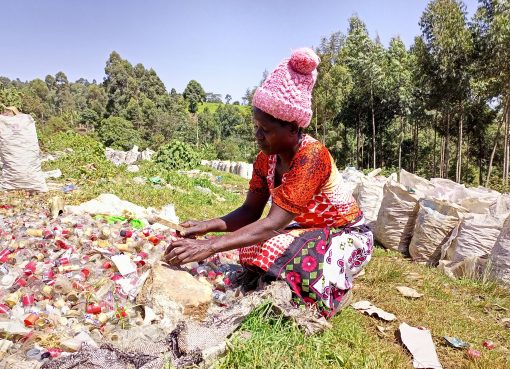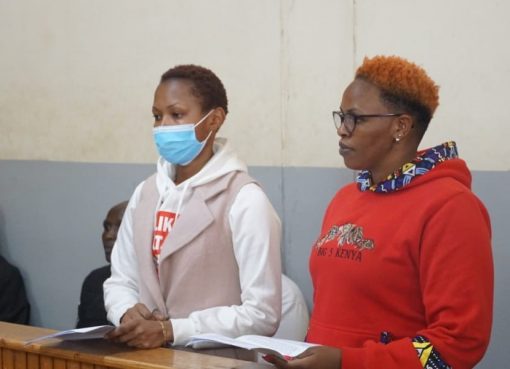Experts advise that for a Nation to industrialize, the citizen especially the youth must embrace innovation. It’s in this regard that the Kenya Government has put policies in place to ensure that the youth are nurtured to embrace innovation.
The Kenyan Government for instance, actively supports the development of digital innovation hubs through initiatives like DigiKen, aiming to empower youth and women entrepreneurs.
The Government’s clarion call to the youths is to tap, innovate and offer possible solutions to local challenges that continued to bedevil the country, especially the youths.
This has seen the state establish and anchor into law various funding interventions from where youths and innovators can tap and catapult their noble and well-suited to today’s world ideas.
Innovation hubs in Kenya are physical spaces intended to nurture entrepreneurship and technical development by bringing together researchers, creators, and innovators to develop new products and services, providing support like co-working spaces, mentorship, networking opportunities, and access to resources to help startups transform ideas into impactful solutions.
Innovation hubs are made up of a system of connections that puts individuals, firms, startups, incubators, and accelerators together to transform innovative ideas into technologically feasible solutions.
They provide a platform for startups to develop and scale their ideas, particularly in areas like digital transformation, customer experience, and operational efficiency. The innovation hubs provide access to industry experts, networking opportunities, training programs, and funding assistance to help startups reach commercialization.
This then contributes to job creation, technological advancements, and economic growth by developing a vibrant startup ecosystem.
Some of the innovation hubs in the country include; iHUB, Nailab, AfriLabs, Innovate now Magharibi Innovation Hub, Ubunifu Hub Machakos among other and the Kenya Airways Fahari Innovation Hub, among others. They all play a key role in driving Kenya’s digital future and economic growth by empowering youth and women entrepreneurs with digital skills.
A section of youths have been left behind from accessing funding for their innovations and this has been compounded by various issues including inadequate awareness on funding opportunities and fear of future repercussions of loans. But creating a knowledge-based approach will help them actualize their dreams.
One such young man is Kelvin Mbugua Njeri, a 26-year-old resident of Naivasha, who if he had access to funding, he would been able to access and use the funds to grow and share his innovative skills with other young people who need it in order to make a living.
He has come up with a mobile structure that can be used by young people to sell various items while moving from one part of the town to the other.
Born and brought up in Naivasha, Kelvin joined an institute in Thika where he studied Motor Mechanics and later on trained to be a Heavy machine Operator, Heavy Load Equipment mover and Technology.
Since 2014 after school, he has been engaging in working with youths at Mtaaani Konnect when it was launched through dancing, guiding and counselling.
Later on, Kelvin joined his mother in working at a Scrap Metal business in Naivasha town where we started mentoring and working with street children.
The idea of a mobile business plan, read mobile kiosk came from childhood movies which gave Kelvin the inspiration to come up with the mobile business structure and voila! When his friends saw it, they encouraged him to move own with the idea.
The first funding when he started this initiative miraculously came from a football betting win where Kelvin won sh109,000 from a betting slip of sh50 from which the idea was catapulted.
To make one mobile kiosk structure, he needs materials such as metals and iron bars which he sources locally, though he says they are a bit expensive.
The idea of a mobile business plan came to him in order to help young people come out of poverty and also come out of idleness. To him, this structure is better that a wheelbarrow since it requires less energy to move it around since you just pedal it like a bicycle. Thus, one can carry more wares to many places without getting too tired.
The advantage of this structure is that the trader is sheltered from various vagaries of the weather and one can sell different items to different customers in a bigger geographical area in a day.
“That’s why I’m trying to introduce it to the youths, trying to educate them and still educate the parents and show them that this is good invention for society and their children, which can help them shun vices such as drugs,” Kelvin says adding that the structure is better than even opening a shop and less expensive because to get to take your wares to where your customers are.
He reveals that last year alone he managed to sell six pieces, two in Nakuru and four in Nairobi, Juja and Kiambu at an average cost is Sh25,000.
Kelvin is now appealing to the Government and financial institutions to support the startups in the innovation sector as this is the only way to industrialize the country.
“We need to be supported to buy the materials we need to make the mobile kiosks which are no demand now and even help create jobs for our fellow youths. If I get the materials, I can teach some street kids how to make these structures and still create jobs for them and still sell them out and make revenue for myself and the nation,” he says.
Kelvin notes youths sometimes have been having difficulties in accessing Government funding through entities such as Youth and Uwezo Funds mainly due to lack of awareness and meeting some of the conditionalities and is now appealing to the Government to do more to ensure the youths especially those who have startups and innovation sector can access the funds.
“Youths have great and we can be tapped to address a myriad of challenges “Though there are Government funds, the biggest challenge to the youths is how to access the funds since some of the requirements are a bit difficult to fulfill for the young people. For instance, the requirement to be in a group of 30 people,”
Kelvin says he mostly works with street children most of whom do not have national Identity Cards (IDs) and because of this, they cannot access funding to expand his work.
He says in future, he intends to commercialize the venture and ensure it is accessible to tens of youths including street children to enable them to earn a living and also equip the mobile business carts with solar and a motor engine in order to ease transportation of the wares for the traders using them.
Kelvin reveals that last year, he managed to display the innovation to Nakuru County Governor Susan Kihika during one of her meetings with the youths in Naivasha. He is now appealing to the county leadership to support him and other youths in the innovation sector.
“For now, I depend on the support from my parents and local churches and my biggest inspiration to push this noble idea is to address the high joblessness and hopelessness among my fellow youths,” he says.
This innovative idea has received a positive response from town residents who have challenged and motivated me to put all efforts into driving and ease of doing business majorly targeting local youths.
Kelvin says so far, his biggest marketing tools have been social media platforms like Facebook, TikTok and Instagram where he has managed to reach thousands of followers from which some have resulted in sales.
He is looking forward to the upcoming World Safari Rally Championships (WSRC) slated for the March 20, this year where he is planning to showcase his work and use it to sell various merchandise.
His advice to fellow youths is; don’t wait to start implementing your ideas because after you start, you can receive support from well-wishers and the Government based on the results of your initial investment.
By Mabel Keya – Shikuku





